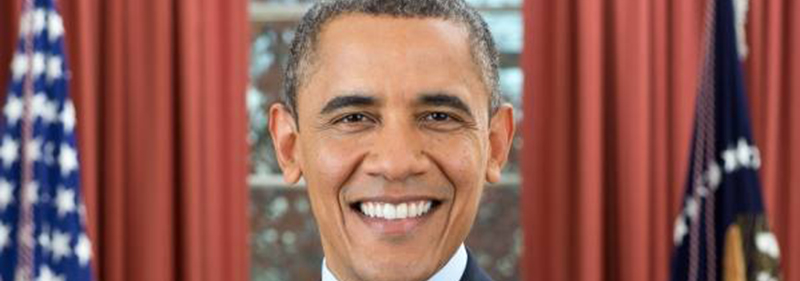
ON April 4, the United States Fish and Wildlife Service banned sport-hunted elephant trophies from Zimbabwe and Tanzania for reportedly poor management practice of the wildlife resource.
Ron Thomson Viewpoint
In the weeks that followed, there have been diplomatic shuttling between Zimbabwe and Washington over the matter and from all fronts — non-governmental organisations and government organisations.
Safari Club International, a 55 000-member wildlife conservation organisation, has also filed a lawsuit against the USFWS and more meetings have been arranged where Zimbabwe is expected to address the matter with US secretary of the Interior Sally Jewell and USFWS director Daniel Ashe.
Due to the importance of this matter to the conservation of the African elephant and of course the environment sector, in this week’s instalment of Viewpoint, we publish an edited letter to US President Barack Obama by a former parks field officer based in South Africa.
. . . . PO Box 45 Kenton-on-Sea 6191 Eastern Cape South Africa Date: 13 April 2014.
Mr Barack Obama President of the United States of America. The White House 1600 Pennsylvania Avenue NW Washington, DC 20500
Dear Mr President,
- Chamisa under fire over US$120K donation
- Mavhunga puts DeMbare into Chibuku quarterfinals
- Pension funds bet on Cabora Bassa oilfields
- Councils defy govt fire tender directive
Keep Reading
US FISH & WILDLIFE SERVICE BAN ON IMPORTATION OF SPORT-HUNTED ELEPHANT TROPHIES
I am a 75-year-old ex-game warden from Rhodesia & Zimbabwe. I served in the Rhodesian and then Zimbabwean, Department of National Parks and Wildlife Management for 24 years (1959 to 1983).
Not only was I an active field officer in the department, I was also a member of the British Institute of Biology (London) & Chartered Biologist for European Union (for c.20 years).
I have had a very distinguished career — and that I have extensive big game hunting, management and capture experience in Africa.
I wish to bring to your attention the fact that the US Fish & Wildlife Service has very recently introduced a ban on the importation (to the United States) of elephant hunting trophies from Tanzania and Zimbabwe.
I draw your attention to the non-existent “evidence” they present in support of this ban:-
(a) Anecdotal evidence (whatever that means), such as the widely publicised poisoning last year of 300 elephants in Hwange National Park, suggests that Zimbabwe’s elephants are under siege.
(b) Additional killing of elephants in these countries, even if legal, is not sustainable and is not currently supporting conservation efforts that contribute towards recovery of the species.
Recovery? Recovery from What?
How, Sir, does the USF&WS judge the “sustainability” of elephant “killings” in Zimbabwe and Tanzania when they openly acknowledge the paucity of their information and understanding about these countries’ elephant management programmes?
Sir, I have 55 years of experience in the field of elephant management.
I served, for three years, as a game ranger in Hwange in my youth; and, in later years, I was the provincial game warden-in-charge of Hwange National Park. And throughout my 24 years’ service in Zimbabwe’s National Parks Department, not one of Zimbabwe’s many elephant populations declined.
In my personal experience of Hwange (1960 to 1983), the elephant population exploded from 3 500 animals (in 1960) to 23 000(+) (in 1983) — despite, latterly, 18 years of sustained annual elephant culling.
Hwange’s elephant population now stands at somewhere between 30 000 and 50 000. And the carrying capacity of Hwange National Park in 1960 was determined to be just 2 500!
Most of Zimbabwe’s elephant populations doubled their numbers every 10 years between 1960 and 2000.
Today, the factor that is putting the brakes on the current “rate” of the elephant population expansion is not poaching, or hunting, but lack of food during the six-month long dry season every year.
The elephant populations in Zimbabwe are ALL “excessive” — which means they now grossly exceed the sustainable carrying capacities of their habitats. The country’s game reserves, therefore, are rapidly being turned into deserts by too many elephants. The adverse effect on Zimbabwe’s biological diversity, as a result of these hugely excessive elephant numbers, is catastrophic.
I am appalled, Sir, at the lack of information and understanding that your USF&WS has about elephant management, particularly, in Zimbabwe.
It hasn’t a clue what is going on, on the ground. And I strongly suspect exactly the same situation pertains with regard to its understanding about the details of elephant management in Tanzania.
I am astounded, therefore, that the USF&WS have imposed this importation ban on elephant trophies from Tanzania and Zimbabwe — based on no shred of proper evidence at all.
If they understood the situation in Zimbabwe they would know that “the elephant problem” in that country is that it has TOO MANY ELEPHANTS.
The draconian impositions of these trophy importation bans will put a virtual stop to elephant hunting in Tanzania and Zimbabwe —where American hunters are “key”.
This will adversely affect the wildlife programmes of both countries; it WILL NOT “help the elephants”; it WILL open the gates of the wildlife sanctuaries to the commercial poachers (because the presence of professional hunters on the ground is the greatest obstacle to poaching of all kinds in these reserves); and it will cause the unnecessary unemployment and impoverishment of a great many of Africa’s people. Nothing good, therefore, can come out this horrific and unsupportable imposition.
In support of my views, Sir, I append Attachment 2. This is an extensive report that fully explains the real situation in Zimbabwe – on the ground.
I would request, Sir, that in the interests of fostering good American/African relations — and in the interests of Africa, its wildlife and its people — that you unilaterally rescind these draconian and ill-considered restrictions.
Thanking you for your considerations,
Sincerely, Ron Thomson











